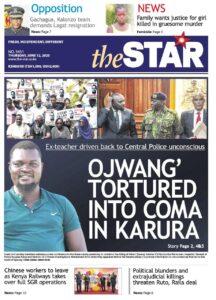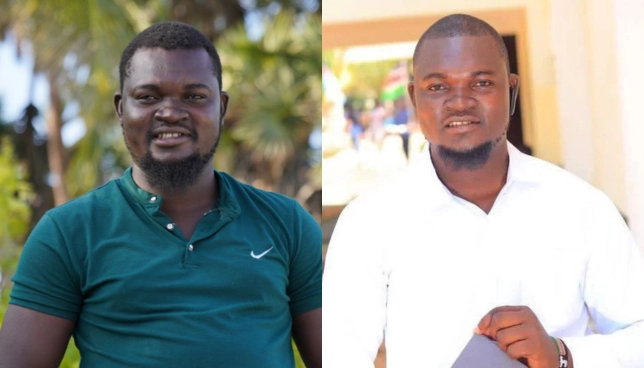The death of Albert Ojwang, a 31-year-old teacher and social media influencer, has shocked the country and raised serious questions about police conduct and human rights in Kenya.
Ojwang was arrested on June 7, 2025, in Homa Bay for allegedly publishing false information online. He was then moved to Nairobi’s Central Police Station, where he died under mysterious and disturbing circumstances.
The police initially claimed that Ojwang died after hitting his head on the wall of his cell. However, an autopsy conducted on June 10 revealed a completely different story.
It showed that Ojwang had been tortured and strangled, with multiple injuries on his body that could not have been self-inflicted.
According to findings reported by The Star Kenya and confirmed by lawyer and activist Willis Otieno, Ojwang was secretly removed from his cell between 9:35 pm and 1:39 am on the night of June 8. Both The Star and Willis Otieno agree that Ojwang was taken to Karura Forest by a second DCI unit, where he was brutally tortured.
He was reportedly handcuffed, beaten until he lost consciousness, and later brought back to the police station in a critical state or possibly already dead.
This chilling timeline suggests a well-planned and coordinated operation designed to silence him. The fact that both The Star and Willis are saying the same thing strengthens the credibility of the claims.

New reports by the Star on reports Albert Ojwang was tortured in Karura Forest.
Willis even shared proof that Ojwang was in good condition when he arrived at the station, further exposing the police narrative as false.
The public response has been one of anger and disbelief. Many Kenyans are now calling for justice using hashtags like #JusticeForAlbertOjwang.
Political leaders such as Kalonzo Musyoka have demanded the resignation of Deputy Inspector General Eliud Lagat, whom they blame for Ojwang’s death. Kalonzo described the incident as a clear case of murder. Raila Odinga also condemned the killing and asked serious questions about who authorized the secret transfer of Ojwang from his cell.
Their statements have been echoed by thousands online, especially after a leaked audio emerged of Ojwang’s last phone call, where he said he feared for his life. That audio has only added more weight to suspicions that he was being targeted.
it becomes harder for the authorities to explain what happened without appearing to hide the truth. The Independent Policing Oversight Authority has promised to investigate, but many Kenyans remain doubtful that justice will be served.
This case has reminded people of past incidents where individuals died in suspicious circumstances while in police custody. Comparing this to the killings of JM Kariuki and Robert Ouko, some are warning that Kenya may be slipping back into a dark era of extrajudicial actions.
The consistent accounts by both a credible media house like The Star and a legal mind like Willis Otieno show that this is not just hearsay. It looks like a deliberate operation to harm Ojwang for what he was posting online.
Albert Ojwang’s death is not just about one man. It represents a larger issue of abuse of power and the erosion of trust in law enforcement.



